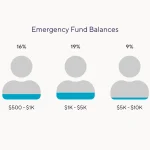
Biotechnology was in the spotlight during the coronavirus pandemic as scientists worked quickly to produce multiple COVID-19 vaccines within one year and companies like Moderna (MRNA) received high praise from investors with promising clinical data for cancer treatments.
Investors have had to adjust their approach when investing in this sector. With the IPO market now closed and venture firms increasingly selective, investors have had to shift the way they invest in companies they support.
Investing in Biotech and Healthcare
Investing in medical breakthroughs is one of the most transformational ways to put capital to work, but its reputation for risk can sometimes discourage investors. But recent interest in biotech and healthcare investments has grown rapidly as health systems, their venture capital divisions, and biotech investors take an active role in commercializing scientific discoveries which may become the next blockbuster drugs or therapies.
While the overall market has experienced some volatility, smaller biopharma companies with market caps of $1-3bn tend to perform better due to more successful home run hits in this range.
In 2022, asset-based biotechs received the greatest share of venture capital funding (Figure 5). Investors showed particular enthusiasm for immunology start-ups that seek to reverse disease drivers; they also appreciated those working on cell therapies and organ scaffolding development.
Biotech and Healthcare Companies
Biotech refers to an umbrella term for companies that integrate science and technology to produce drugs and related products, including pharmaceutical companies, medical device makers and biofuel producers. Biotech firms may also work on genetically modified foods or alternative meat production.
Pharmaceutical companies research, produce and market medications that treat diseases and conditions. Unfortunately, however, this process typically takes years due to lengthy trials and regulatory approval processes.
Pharmaceutical companies are now purchasing small biotech firms to accelerate development, thus blurring the lines between biotech and traditional pharma.
Biotech companies tend to be leaner, more agile, and can shift directions more rapidly than large pharmaceutical firms, which allows them to gain ground over big pharma in the race for new medicines that cure diseases. An example would be Novartis’ CAR-T therapy used against Hepatitis C by isolating cancer cells; or Amgen’s COVID-19 pandemic vaccine as two examples of such advances in this arena.
Biotech and Healthcare Markets
Biotechnology firms include an array of diverse organizations. Some utilize living organisms to manufacture products, solve problems and make other life-altering advancements; such as creating pest-resistant crops and producing ethanol fuel from corn through biological processes.
Development of new vaccines has also been an area of rapid expansion within this sector. Biotech firms were crucial players during the COVID-19 pandemic in creating mRNA vaccines to alleviate symptoms caused by this virus and provide some relief.
Investors interested in the biotech industry have several investment options to consider, from buying individual biotech stocks or mutual funds to exchange-traded funds (ETFs), offering investors access to healthcare and biotech companies without risk of single company failure; price-to-earning ratios may not provide adequate measurement here due to negative cash flows before drug approvals take effect. SMID-cap biotech ETFs have shown positive returns so far this year!
Biotech and Healthcare Investments
Biotech companies can be life-changers. By producing innovative medicines and medical devices that address diseases such as cancer and autoimmune disorders, these successful companies produce life-altering solutions which improve people’s quality of lives – creating an appealing investment opportunity with potentially high returns on investments.
Biotech companies not only focus on creating new drugs, but can also enhance diagnostic tools. Genomic companies use data to make it easier for physicians to recognize and treat specific genetic conditions.
Biotech and healthcare investments are highly volatile, as many smaller companies rely on clinical trial results and FDA approvals for survival. Diversification can help mitigate these risks; different investments such as traditional stocks, ETFs and mutual funds offer different returns; however specialized ICULS funds may provide investors with unique advantages not offered elsewhere.


